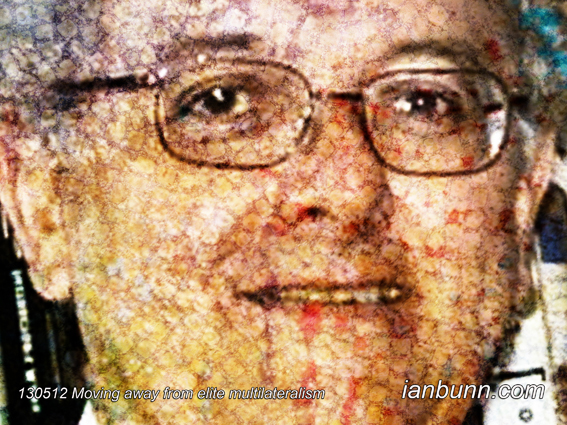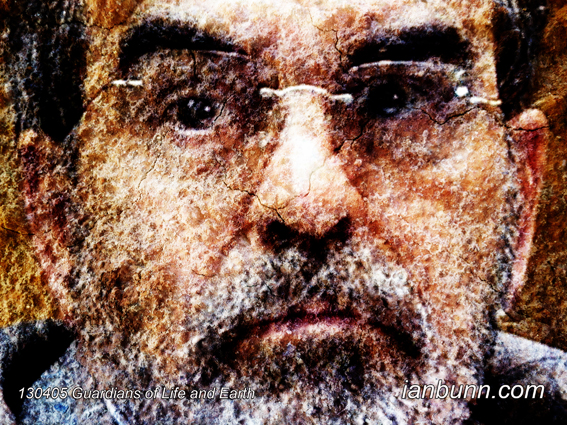 Everywhere in Europe we see rising intolerance (June 21 2013)
Everywhere in Europe we see rising intolerance (June 21 2013)
Emma Bonino the 65 year old Italian politician and Minister of Foreign Affairs and a leading member of the Italian Radicals, a political party that supports economic and social libertarianism, and human rights, has published an article on IPS News Service titled ‘A Federation Could Strengthen Europe’s Magnetism’ in which she states “The recent agreement for the normalisation of relations between Serbia and Kosovo has confirmed that the European Union (EU) is still acting as a “magnet”, attracting its external neighbours and transforming and integrating them. Thanks to its prospects for EU membership, the whole Balkan area has become more stable and secure. Unfortunately, this virtuous magnetism no longer exerts the same force of attraction on our own citizens. With every passing day, the founding fathers’ dream of peace and freedom seems to be turning into a nightmare for many. The EU is increasingly being associated with austerity policies that lead to recession, unemployment and social despair. More worryingly, there are signs that the current crisis is not limited to the EU’s economic sphere but also impacts its most fundamental values. Everywhere in Europe we see rising intolerance; growing support for xenophobic and populist parties; discrimination and a weakening of the rule of law; and entire populations of undocumented migrants, virtually without rights, punished for their status rather than their individual behaviour. Our inclusive and open community is threatened by destructive actions pursued by nationalistic and demagogic groups. But they are not the only ones inflicting damage on the Union. …If Europe does not solve its problems of recession and populism, we could lose all that we have achieved since the 1950s, with no estimate of how long it will take to regain the same level of democracy, prosperity and stability as before. But if we adopt a new vision, engage our citizens and unite our governments, we could start a new phase of boosting growth and fostering democratic legitimacy and global influence.”
Inspired by Emma Bonino, IPS News ow.ly/lE457 Image source WEF ow.ly/lE3YP
![Divina Frau-Meigs the 53 year old Moroccan professor in information science and communication and language has been interviewed by Clarinha Glock for the IPS News Service titled ‘Schools need Transliteracy’ in which she states “It [transliteracy] is knowing how to read, write, calculate and compute. But “compute” includes understanding these three categories of information: code, document and current events/press. Students and teachers must be trained. The role of school is to clarify and help people understand all kinds of contents, modify them, and comment on them. …Students think they know everything, from their perspective of dealing with computers and tablets. And professors say that if students have good knowledge to read and write, it is enough. It is necessary to break down this resistance to awareness-raising, in hands-on practical classrooms. For example: I ask students to look for the information they need for their projects. They respond: “There are millions of pieces of information, I don’t know where to start.” Teaching students to eliminate, evaluate, assess, change – that is the role of schools. It’s a way of learning to learn, which is what we must put again at the centre of the curriculum. …Transliteracy doesn’t only occur in schools. School rhythms are changing, because students can now connect at night, outside the school premises. The role of teachers will also be different. Their salaries must be enhanced, but knowing what they need in terms of training, and the new conditions of schedules, rhythms and resources. The decision must be assumed by teaching staff, government ministries, trade unions, companies and students – as a new social contract. …Since the 19th century, the social contract has been free, public – even though many schools are private – and secular education. And another characteristic has to be incorporated: “open” – through informatics, which gives access to many contents from other countries and cultures. With informatics, ideas can be developed to the maximum. And if we use it well, it can empower everyone…” Inspired by Clarinha Glock, IPS News ow.ly/l33Ri Image source Frau-Meigs ow.ly/l34fd](http://www.ianbunn.com/wp-content/uploads/2013/05/130604dcU60.jpg)
![Nestor Osorio Londono the Colombian administrative lawyer and Representative to the UN has been interviewed by Gustavo Capdevila for the IPS News Service in an article titled ‘Q&A: Innovation Key to Sustainable Development Goals’ In the article Osorio Londono states “I believe it [Innovation, as the fruit of science and technology] is a cross-cutting issue within many of the objectives for the post-2015 period. We’re talking about the SDGs [Sustainable Development Goals] – that is, how to do something beyond the MDGs [Millennium Development Goals] and bring together industrialised and developing countries in an ongoing process of irreversible compliance with fundamental goals for integral sustainability. …We’re talking about water conservation, more liveable cities, food security, infrastructure and curtailing (green house) gas emissions. We have to decarbonise the planet. And all of this forms part of innovation. …Those who can participate in a very efficient manner, as we have seen, are young people. Young people are and always have been involved in the origins of the biggest innovations. Microsoft, Facebook and others have been created, innovated, by 20 or 25-year-old kids.So there’s a very important link here: how innovation and connection and preparation of future work go together. And when it comes to gender equality, we’re talking about the same thing. …I think they could do it with a fundamental commitment by governments, which translates into budget allocations. The partnership between government and private sector is also essential throughout this process. I’ll cite an example of what we have done in Colombia: the policy of President Juan Manuel Santos has been to earmark – and a law was approved to this end – a portion of oil and mining industry royalties to the Institute of Sciences and Technology. …Companies gradually discover what their needs are and how they have to adapt to the requirements of sustainability. (For example), there can’t be investment in projects that use huge quantities of water, because that is wasteful. Companies have to adapt to the requirements that the world presents…” Inspired by Gustavo Capdevila, IPS News ow.ly/kBeTC Image source Twitter ow.ly/kBg0S](http://www.ianbunn.com/wp-content/uploads/2013/05/130530dcU60.jpg)



![Tiago Maranhao Alves the Brazilian a physical engineer and CEO of CSEM Brasil an innovations-based company is the subject of an article published by Alice Marcondes on the IPS News Service titled ‘Brazilian-Made Plastic Solar Panels, a Clean Energy Breakthrough’ which states “[Maranhao Alves] While the capacity for power generation is almost the same, its small size means that it can be given uses that are almost impossible for silicon panels”. What looks like a thin, flexible sheet of regular plastic is actually a solar panel printed with photovoltaic cells, which convert sunlight into electricity. This new material, totally unlike the heavy and costly silicon-based panels commonly used to generate solar power today, was created by scientists at CSEM Brasil, a research institute based in the southeast Brazilian state of Minas Gerais. Made by incorporating organic photovoltaic cells into common polymers, the new panels resemble transparent sheets of plastic with stripes where they have been printed with carbon-based organic polymers. …The lightweight, flexible new material can be used to power the electrical components of automobiles and in electronic devices like mobile phones and wireless computer keyboards and mice. But the Brazilian researchers are concentrating on the production of solar panels, which can be used to cover relatively large areas, like windows. “A panel with a surface area of two or three square metres could be sufficient to generate the energy needed in a house lived in by a family of four. Because of its good cost-benefit ratio, it could also be an option for bringing energy to remote areas without electric power service.” …The plastic can also be used to cover buildings and venues like airports and sports stadiums, avoiding the need to set aside an area for the installation of conventional solar panels. …”We are now going to study the best way to scale up the product.” Inspired by Alice Marcondes, IPS News Service ow.ly/jArfG Image source LinkedIn ow.ly/jAreE](http://www.ianbunn.com/wp-content/uploads/2013/04/130418dcU60.jpg)
![Claudia Ciobanu the Bucharest journalist writing on the issues of transition within Romania and Bulgaria, has published an article on the IPS News Service titled ‘Poland Cornered Over Its Secret Prisons’ in which she states “A Polish official investigation into the existence of a secret CIA prison on its territory is being stalled, according to official sources, while pressure on the country to tell the truth mounts. … [a] report to the recent Globalising Torture study of Open Society Foundations, claim Poland hosted a secret CIA prison used in the extraordinary rendition programme from the end of 2002. Under this programme, the U.S. detained and interrogated terrorism suspects in Europe. …Poland seems to be this new location. …officials from governments and intelligence services of various countries, including Poland and the U.S., interviewed by UN and EU bodies, NGOs and journalists, point to the fact that the Polish site was key to the CIA scheme. Those sources continue to speak under the condition of anonymity because both Poland and the U.S. refuse to officially reveal details about how rendition functioned. In Poland, a prosecutors’ investigation started in 2008 has recently taken a dubious turn. Until a year ago, the investigation was conducted by the Warsaw prosecutors’ office, under two successive prosecutors. …After this news came out, the case was moved to Krakow. Mikolaj Pietrzak, the Polish lawyer [stated] “It is extremely irregular that a case be shifted to three different prosecutors, and the fact that in the last year nothing has gone forward apparently is a very sad statement about the investigation.” … Pietrzak, who has at one point seen the full file of the Polish investigation, claims: “This case is going to be very difficult to overturn, because there is a lot of evidence, and you simply cannot pretend that what is there in the prosecutors’ file doesn’t exist.” Inspired by Claudia Ciobanu, IPS News Service ow.ly/j4E5X Image source Human Wrongs Watch ow.ly/j4DmR](http://www.ianbunn.com/wp-content/uploads/2013/03/130412dcU60.jpg)





![Rebecca Johnson the British internationally-recognized expert on nuclear disarmament and non-proliferation, Co-Chair of the International Campaign to Abolish Nuclear Weapons (ICAN), has published an article on the IPS News Service titled ‘Changing the Game to Achieve Nuclear Disarmament’. Johnson states “Recent initiatives by the [ICAN], the Red Cross and a growing number of governments have begun to arouse global interest in the humanitarian effects of nuclear weapons. …Norway’s Foreign Minister Espen Barth Eide invited all United Nations governments to send senior officials and experts to participate in an international conference on the humanitarian impact of nuclear weapons on March 4-5, 2013, in Oslo. The aim of the conference is “to provide an arena for a fact-based discussion of the humanitarian and developmental consequences associated with a nuclear weapon detonation…” This conference aims to bring together not only scientists and doctors to talk about the immediate blast, flash-burns, fires and radiation that would incinerate and contaminate millions, but also agencies that deal with refugees, food insecurity and the medical needs of millions of homeless, starving people… The nuclear free countries have to stop behaving like passive supplicants, giving veto powers to their nuclear-armed neighbours. Unlike traditional arms control, humanitarian disarmament approaches recognise that everyone has the right and responsibility to take steps to prevent the use of nuclear weapons. The best way to do this is to ban and eliminate nuclear weapons. Once the nuclear-free countries acknowledge their own power and responsibility, they will find that a nuclear ban treaty can be far quicker and simpler to achieve than they thought. By changing the legal context, such a treaty would be a game changer, draining power and status from the nuclear-armed governments and hastening their understanding of their own security interests, increasing the imperative for concerted nuclear disarmament rather than perpetual proliferation.” Inspired by Rebecca Johnson, IPS News ow.ly/hhTX1 Image source nobelforpeace-summits ow.ly/hhTNo](http://www.ianbunn.com/wp-content/uploads/2013/02/130210dcU60.jpg)